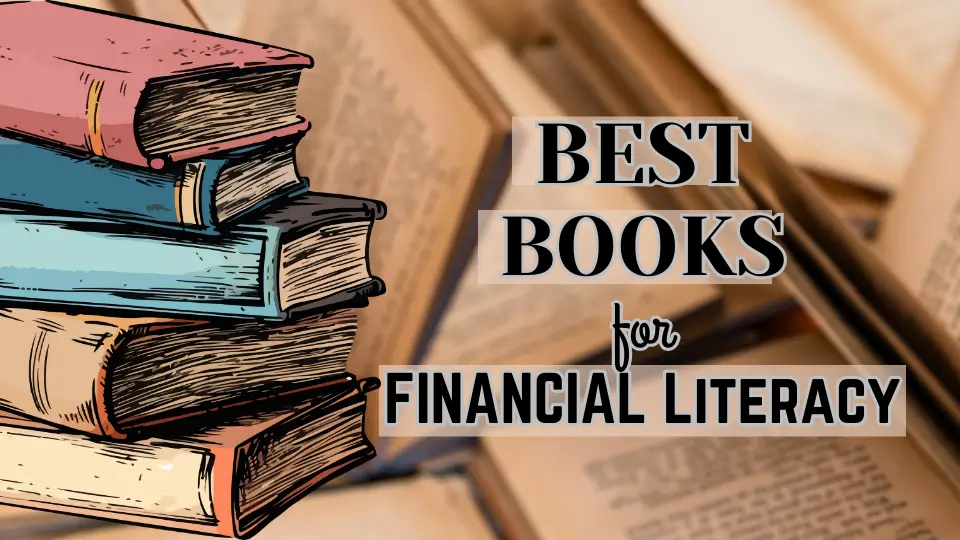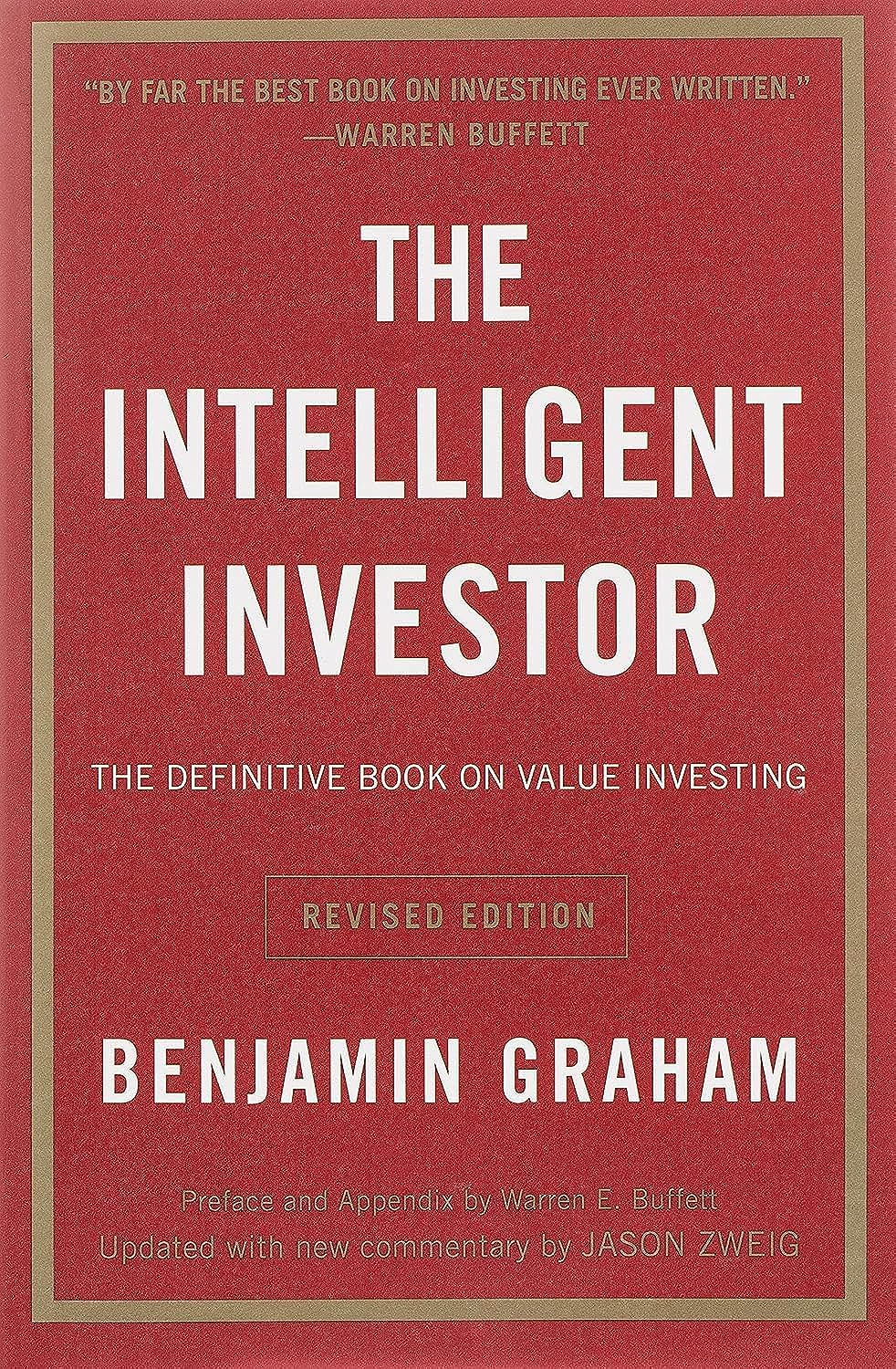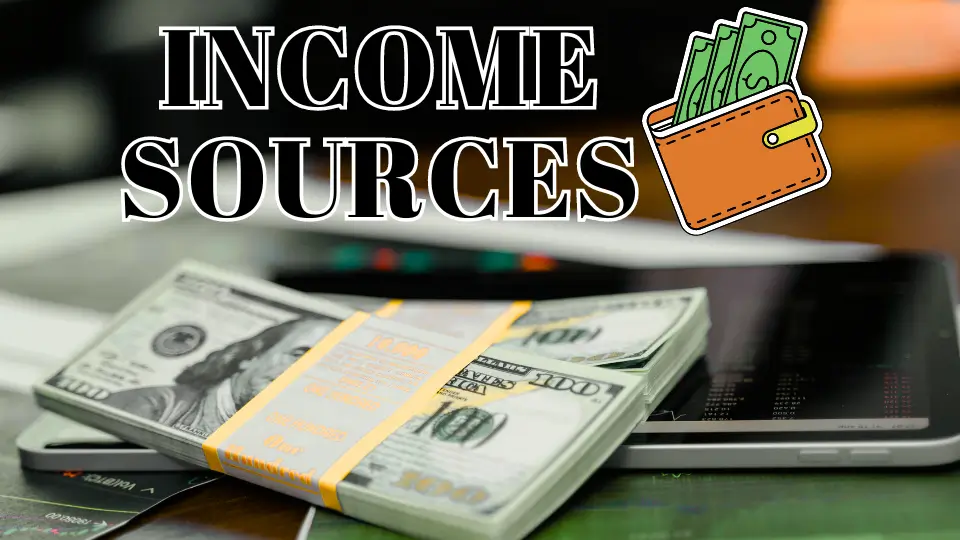Starting on a journey towards financial literacy is a transformative step towards achieving lifelong economic well-being.
In the ever-evolving landscape of personal finance, staying informed is paramount, and what better way to navigate the complex world of money management than with the guidance of the best books for financial literacy in 2024?

In an era where financial decisions significantly impact our lives, these books offer more than just advice; they provide actionable insights, time-tested strategies, and real-world wisdom.
Whether you’re aiming to conquer debt, build wealth, or make informed investment decisions, the top 10 books for financial literacy in 2024 offer a wealth of knowledge to empower individuals of all backgrounds.
Let these resources be your trusted companions as you navigate the intricacies of budgeting, investing, and securing a financially sound future.
- List of 10 Best books for Financial Literacy
- 1. The Total Money Makeover by Dave Ramsey
- 2. Rich Dad Poor Dad by Robert T. Kiyosaki
- 3. The Intelligent Investor by Benjamin Graham
- 4. Your Money or Your Life by Vicki Robin and Joe Dominguez
- 5. A Random Walk Down Wall Street by Burton G. Malkiel
- 6. The Millionaire Next Door by Thomas J. Stanley and William D. Danko
- 7. The Richest Man in Babylon by George S. Clason
- 8. I Will Teach You to Be Rich by Ramit Sethi
- 9. The Bogleheads' Guide to Investing by Taylor Larimore, Mel Lindauer, and Michael LeBoeuf
- 10. Money: Master the Game by Tony Robbins
- Conclusion
List of 10 Best books for Financial Literacy
Here’s a list of books that have been well-received for financial literacy: These carefully curated recommendations serve as invaluable companions on the path to financial understanding and success.
1. The Total Money Makeover by Dave Ramsey
“The Total Money Makeover” by Dave Ramsey stands out as one of the best books for financial literacy, contributing significantly to the landscape of books on financial literacy.
Ramsey’s approach, detailed within the pages of this transformative book, offers a comprehensive guide for individuals striving to enhance their financial well-being.
In the realm of books for financial literacy, Ramsey’s work takes center stage, providing a step-by-step plan that reshapes financial habits and attitudes.
Key elements includes…
- Debt Snowball Method: Prioritize paying off the smallest debts first to build momentum.
- Emergency Fund: Save three to six months’ worth of living expenses for financial security.
- Envelopes and Cash System: Use a cash-based system for budgeting to control spending.
- Live on a Budget: Create and stick to a detailed budget to allocate money wisely.
This book on financial literacy goes beyond traditional advice by addressing both the practical and psychological aspects of money management.
The debt snowball strategy, budgeting principles, and the emphasis on emergency funds are not just financial tools; they represent a holistic approach to achieving financial success.
Ramsey’s work is an indispensable resource in the library of books for financial literacy, offering timeless guidance for a secure and prosperous financial future.

Develop a realistic budget, eliminate debt using the debt snowball method, build an emergency fund, and invest for the future.
2. Rich Dad Poor Dad by Robert T. Kiyosaki
“Rich Dad Poor Dad” by Robert T. Kiyosaki is undoubtedly among the best books for financial literacy, marking its significance in the realm of books on financial literacy.
Kiyosaki’s narrative revolves around his “rich dad” and “poor dad,” comparing their distinct financial philosophies and lifestyles.
As a prominent book for financial literacy, it underscores the crucial role of financial education and challenges conventional notions about money.
Key takeaways…
- Asset vs. Liability Perspective: Prioritize income-generating assets over accumulating liabilities.
- Financial Education: Emphasizes the need for practical financial knowledge often neglected in traditional education.
- The Rat Race: Urges readers to seek financial independence by creating passive income streams.
- Entrepreneurial Mindset: Encourages a mindset shift towards taking calculated risks and exploring investment opportunities.
Within the extensive collection of books for financial literacy, “Rich Dad Poor Dad” stands out as a guide that not only imparts financial knowledge but also prompts a paradigm shift in how individuals perceive and handle money.
Its principles align with the essence of best books for financial literacy, making it an essential read for those seeking a comprehensive understanding of wealth-building strategies and financial independence.
Kiyosaki’s work remains an enduring contribution to the landscape of books on financial literacy, inspiring readers to transcend traditional financial boundaries.

Understand the difference between assets and liabilities, invest in assets that generate passive income, and prioritize financial education.
3. The Intelligent Investor by Benjamin Graham
“The Intelligent Investor” by Benjamin Graham is a cornerstone among the best books for financial literacy, recognized for its enduring wisdom in the realm of books on financial literacy.
Graham, considered the father of value investing, imparts timeless principles for smart investment strategies.
The book champions a defensive and disciplined approach to investing, emphasizing the importance of fundamental analysis and a long-term perspective.
Key takeaways…
- Value Investing: Advocates for a long-term, value-oriented investment approach.
- Margin of Safety: Emphasizes the importance of a margin of safety to protect against investment risk.
- Mr. Market Analogy: Introduces the concept of Mr. Market, representing the market’s irrational and emotional behavior.
- Defensive Investing: Recommends a defensive investment strategy, particularly for the conservative investor.
- Market Fluctuations: Views short-term market fluctuations as opportunities rather than reasons for panic.
Within the spectrum of books for financial literacy, “The Intelligent Investor” remains unmatched in its ability to simplify complex financial concepts and provide a comprehensive guide to navigating the stock market.
It is not merely a book on financial literacy but a guiding beacon for investors, embodying the essence of the best books for financial literacy by instilling prudence, discipline, and a rational approach to wealth creation.

Focus on the fundamentals of companies, use a margin of safety, and adopt a patient and disciplined investment strategy.
4. Your Money or Your Life by Vicki Robin and Joe Dominguez
“Your Money or Your Life” by Vicki Robin and Joe Dominguez is an influential entry among the best books for financial literacy, offering a holistic perspective within the domain of books on financial literacy.
The book serves as a guide to achieving financial independence by redefining the relationship between money and life. Its central theme revolves around aligning one’s spending habits with personal values and long-term goals.
Key takeaways…
- Money as Life Energy: Encourages readers to view money as a representation of the time and energy.
- Financial Independence: Focuses on achieving financial independence by aligning spending with personal values.
- Total Money Makeover: Advocates for a comprehensive approach to money management.
- Tracking Spending: Emphasizes the importance of meticulous tracking of expenses for a clear understanding of financial habits.
- Investing in Your Values: Suggests investing in experiences and activities that bring fulfillment rather than focusing solely on material possessions.
In the realm of books on financial literacy, “Your Money or Your Life” stands out as an exploration of the psychological and emotional aspects of personal finance.
It provides actionable insights into intentional living, financial mindfulness, and achieving financial goals aligned with personal values.

Track and analyze your spending, seek fulfillment beyond material possessions, and invest in experiences that bring lasting joy.
5. A Random Walk Down Wall Street by Burton G. Malkiel
“A Random Walk Down Wall Street” by Burton G. Malkiel is an essential addition to the best books for financial literacy, standing out in the realm of books on financial literacy for its comprehensive exploration of investment strategies.
Malkiel takes readers on a journey through various investment avenues, demystifying complex financial concepts.
Positioned as an insightful book for financial literacy, it advocates for a passive, index fund approach, challenging the efficacy of active stock picking and market timing.
Key takeaways…
- Efficient Market Hypothesis (EMH): Stock prices reflect all available information, making it difficult to consistently outperform the market.
- Random Walk Theory: Stock prices move randomly, challenging the effectiveness of short-term predictions and technical analysis.
- Diversification and Asset Allocation: Spread investments across different asset classes to reduce risk and enhance long-term returns.
- Index Investing: Advocates for passive investing in broad market indices for cost-effectiveness and simplicity.
- Behavioral Finance: Considers the impact of psychological biases on investment decisions.
Within the spectrum of books on financial literacy, “A Random Walk Down Wall Street” serves as an accessible guide, making financial concepts understandable for a broad audience.
It encapsulates the essence of the best books for financial literacy by promoting a disciplined investment strategy that aligns with long-term wealth-building goals.

Understand the efficient market hypothesis, diversify your investments, and consider low-cost index funds for long-term wealth.
6. The Millionaire Next Door by Thomas J. Stanley and William D. Danko
This is a cornerstone among the best books for financial literacy, distinguishing itself in the landscape of books on financial literacy by debunking common misconceptions about wealth.
The authors conducted extensive research, revealing that many millionaires live modest lifestyles and emphasizing the correlation between discipline, frugality, and financial success.
Key takeaways…
- Wealth Characteristics: Profiles the typical millionaire, emphasizing traits such as frugality, hard work, and disciplined saving.
- Living Below Means: Highlights the importance of living below one’s means to accumulate wealth steadily.
- Income Isn’t Everything: Challenges the assumption that high income guarantees wealth, showcasing cases where prudent financial habits matter more.
- Value of Education: Stresses the correlation between education, career choices, and long-term financial success.
- Homeownership and Cars: Discusses how millionaires often prioritize financial investments over extravagant.
Within the genre of books on financial literacy, “The Millionaire Next Door” offers practical insights into the habits and characteristics of those who have successfully accumulated wealth.
It encapsulates the essence of the best books for financial management by encouraging readers to adopt a mindset focused on long-term financial stability and strategic wealth-building.
READ MORE 👉 11 Best Audio Books of All Time for Building Wealth in 2024

Focus on frugality, prioritize saving and investing, live below your means, and cultivate discipline in financial habits.
7. The Richest Man in Babylon by George S. Clason
“This book stands tall among the best books for financial literacy, making its mark in the genre of books on financial literacy with timeless wisdom delivered through parables set in ancient Babylon.
The book imparts crucial financial principles in a narrative format, presenting age-old lessons that remain relevant today.
Key takeaways…
- The Seven Cures for a Lean Purse: Presents timeless principles for financial success, including saving a portion of income and making money work for you.
- Start Thy Purse to Fattening: Advocates for consistently saving a portion of earnings as the first step toward wealth.
- Make Thy Gold Multiply: Emphasizes the importance of wise investments and making money work through sound financial decisions.
- Guard Thy Treasures From Loss: Advises caution in investment decisions and the need to avoid risky ventures.
- Increase Thy Ability to Earn: Encourages continuous self-improvement and the enhancement of skills to increase earning potential.
Within the spectrum of books on financial literacy, “The Richest Man in Babylon” is a classic that transcends time, offering a foundation of financial knowledge through engaging stories.
It encapsulates the essence of the best books for financial literacy by imparting fundamental principles in a digestible and memorable format.

“Start thy purse to fattening” (save consistently), “Make thy gold multiply” (invest wisely), and “Guard thy treasures from loss” (be cautious in financial dealings).
8. I Will Teach You to Be Rich by Ramit Sethi
“I Will Teach You to Be Rich” by Ramit Sethi earns its place among the best books for financial literacy, offering a modern and actionable guide within the realm of books on financial literacy.
Sethi’s approach is pragmatic, providing a six-week program that covers budgeting, banking, investing, and automating financial processes.
Key Takeaways…
- Automation of Finances: Advocates for setting up automatic systems for saving, investing, and paying bills to streamline financial management.
- Conscious Spending: Emphasizes the importance of conscious spending on things that truly matter, rather than strict budgeting or extreme frugality.
- Investing Early: Stresses the benefits of starting to invest early to take advantage of compound growth.
- Negotiation Skills: Encourages readers to develop negotiation skills for better deals on bills, salaries, and other financial transactions.
- Focus on Big Wins: Advises prioritizing significant financial decisions, or “big wins,” that can have a substantial impact on one’s financial situation.
Within the landscape of books on financial literacy, “I Will Teach You to Be Rich” stands out for its relevance to the digital age, addressing the financial challenges of the modern era.
Sethi’s work is not just a book on financial literacy; it’s a roadmap for the digital generation, offering practical strategies to achieve financial success and build wealth.

Optimize your spending, automate savings and investments, negotiate bills, and focus on conscious spending rather than extreme frugality.
READ MORE 👉 11 Must Read Best Books for Entrepreneurs of All Time 2024
9. The Bogleheads’ Guide to Investing by Taylor Larimore, Mel Lindauer, and Michael LeBoeuf
“This is an indispensable addition to the best books for financial literacy, standing out in the realm of books on financial literacy for its adherence to the principles of John C. Bogle, founder of Vanguard.
This comprehensive guide advocates for a simple and effective approach to investing.
Key takeaways…
- Passive Investing Philosophy: Advocates for a passive investment strategy, particularly through low-cost index funds, based on the principles of John Bogle, founder of Vanguard.
- Diversification: Stresses the importance of diversifying investments across various asset classes to reduce risk.
- Minimizing Costs: Emphasizes the significance of minimizing investment costs, including fees and expenses, to maximize returns.
- Long-Term Perspective: Encourages a long-term investment perspective, discouraging market timing and short-term speculation.
- Investor Education: Promotes investor education and empowerment, providing readers with the knowledge and tools to make informed financial decisions.
Within the spectrum of books on financial management, “The Bogleheads’ Guide to Investing” stands as a testament to the enduring success of a straightforward and disciplined investment approach.
It encapsulates the essence of the best books for financial literacy by demystifying complex financial jargon and providing actionable advice for investors at all levels of expertise.

Adopt a simple, low-cost investment strategy, diversify across asset classes, minimize taxes, and stay disciplined in your investment approach.
READ MORE 👉 13 Best Books on Money Mindset Building of All Time 2024
10. Money: Master the Game by Tony Robbins
“Money: Master the Game” by Tony Robbins is a compelling addition to the best books for financial literacy, making its mark in the realm of books on financial literacy by combining Robbins’ motivational prowess with insights from interviews with renowned financial experts.
The book serves as a comprehensive guide to mastering money, covering topics such as investment strategies, retirement planning, and wealth building.
Key takeaways…
- Financial Freedom Blueprint: Tony Robbins provides a step-by-step plan for achieving financial freedom.
- Diversified Investing: The book emphasizes the importance of diversifying investments across various assets.
- Fee Awareness: Robbins highlights the impact of fees on investment returns and encourages fee-conscious investing.
- Expert Insights: Interviews with financial experts offer diverse perspectives on wealth-building.
- Mindset Matters: The book acknowledges the role of mindset and psychology in achieving financial success.

Understand the power of compound interest, diversify investments, minimize fees, and take control of your financial destiny through informed decision-making.
READ MORE 👉 11 Best Investing books for Beginners of All Time in 2024
Conclusion
In conclusion, the recommended books for financial literacy on this page collectively form a comprehensive guide to achieving financial success.
From Dave Ramsey’s transformative “The Total Money Makeover” to Kiyosaki’s paradigm-shifting “Rich Dad Poor Dad,” each book offers unique insights.
Classics like “The Millionaire Next Door” and “The Richest Man in Babylon” provide timeless wisdom, while more modern works like Ramit Sethi’s “I Will Teach You to Be Rich” address current financial challenges.
“The Bogleheads’ Guide to Investing” aligns with John C. Bogle’s principles, emphasizing a disciplined, low-cost approach. Tony Robbins’ “Money: Master the Game” combines motivational elements with practical insights from financial experts.
Together, these books serve as a diverse and empowering toolkit, equipping readers with the knowledge and mindset necessary for financial literacy and independence.
READ MORE 👉 11 Best Books for Starting a Business for Young Professionals
👉👉 13 Must Read Best Books on Productivity & Time Management
I am sure, you find this post valuable and practical. Share your thoughts, and if you know someone seeking this information, pass it along. Thanks for reading, and stay tuned for more valuable content.



